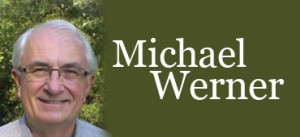Who Comes First, People or the Planet?

HUMANISM HAS BEEN labeled by some as anthropocentric and given to speciesism, the belief that human beings are set apart and should be valued above the rest of the biosphere. If all we’re interested in is ourselves, what about other sentient species, other life on the planet, and, indeed, Earth itself? What about sentient artificial intelligence on the horizon? These situations represent classic ethical dilemmas where we should ask whether human exceptionalism and human-oriented values override other species’ considerations. Should we always place ourselves first?
Our values can be in radical, irresolvable conflict with each other and it appears this is the case in trying to decide the value of humans versus the rest of the biosphere. At one extreme are some deep ecologists who argue that humans are a destructive weed destroying the planet, while at the other extreme are those who say humans should have dominion over the earth and everything on it. I think there needs to be a balance of concerns, but there isn’t always an easy answer for how to strike it.
For an extreme example, ask yourself: Is it right to kill off an endangered species if human survival depends on it? Arguments generally center on the idea that humans are not just different in degree, but differ in kind as sentient, self-reflective, moral agents. This is countered by the idea that sentience and emotions have also been observed in animals and therefore they have inherent value as well. It is so far an irresolvable dilemma for humanists across a broad spectrum.
Arguments over rights seem to only confuse matters as they narrow the arguments to rationalistic (and rationalizing) logic devoid of real-world consequences. One thing we do know for sure is that animals can suffer. Another is that only humans can really change things.
Since our values come from human values, this warns us that we’re always biased toward self-interest. Setting people as the ultimate value can result in making other species and, indeed, the entire biosphere subservient to human need.
What’s clear, however, is that nature is highly valued by all humanists and saying that humanists are only interested in human welfare misses the point that all of nature is woven into who we are.
The only issue is where we should place the balance of our concerns. We are tragically bound, abandoned as the existentialists say, to make these decisions without firm boundaries, foundations, or rules.
As we are forced to confront dwindling resources and admit to our excesses, we’ll constantly have to make choices between human welfare and the welfare of other animals. We’ll have to give up ideas of equating progress with mindless growth. We’ll see that technology can’t always be our savior, but can lead to extraordinary and unexpected advances. We’ll have to enlarge our minds and hearts, while at the same time acknowledging that self-interest is our major driving force. We’ll have to find ways to extend our altruistic drives, which are generally reserved for our families and close tribe members, to humanity at large, the biosphere, and what E.O. Wilson calls biophilia. We will be forced to confront the reality that building a sustainable future inherently means reordering historic values and concerns. These are not easy tasks, which is why we must garner all our wisdom to see our lives embedded in Earth’s ecology.
Ecohumanism calls for re-enchantment with nature. It calls for a cultural transformation from otherworldliness to the world as it is. Ecohumanism calls us to see our embeddedness and interdependence in nature that, as all of us know today, is at severe risk. As the biosphere bleeds with our assaults, there are choices we can make: using renewable energy; preserving grasslands, forests, and maritime reefs; preserving endangered species; recycling; reducing pollution; moving away from meat eating; reducing population; and studying and understanding the amount of sentience in animals. Most of these choices aren’t hard dilemmas. It’s the will to make them that’s the challenge.
